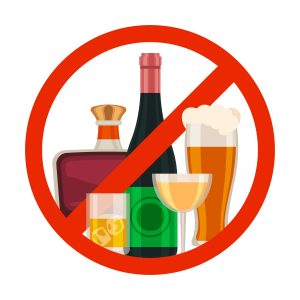Alcoholism – a progressive illness

Anyone with an alcohol or drug addiction or dependency will experience it as a progressive illness. This means that it only gets worse, never better. Ultimately, they may feel sufficiently miserable and helpless that they decide they need to do something about it. For the majority, the first action they will take is to either try and cut back on their daily amounts or see their GP or both.
Cutting back or suddenly stopping drinking can be dangerous
Cutting back on alcohol or worse, suddenly stopping drinking, can be very dangerous. This is because heavy drinking changes the brain’s neurochemistry with a rise in dopamine levels and a change in the balance of the brain’s neurotransmitters. Over a period of time the brain adjusts to increased levels and a physical dependence develops, meaning the body requires alcohol to function.
If there is a sudden reduction in the amount of alcohol in the body, the brain struggles to readjust. This is the cause of alcohol withdrawal symptoms which include sweating, nausea, vomiting, hand tremors and in severe cases, seizures and even death. Everyone is different and it is very difficult to gauge a safe daily reduction but the biggest problem is that when you take a drink, the brain recognises it and wants more. Therefore to try and cut back is almost impossible and the cravings are such that it is difficult, after only a few days, to not return to what we were drinking before.
Help for drinking too much from the GP
Seeing our GP will not often help. GPs will usually decline to prescribe medication to help with alcohol withdrawal. This is because the amount that can be prescribed to be taken in the home environment is not high enough to prevent a degree of withdrawal. Therefore there will still be a craving for alcohol and drinking while taking the prescription medication can be dangerous. Many GPs will prescribe anti depressants to help with our worsening depressive mood swings but the one thing that alcohol nullifies is anti depressant medication – while actually causing depression. So we become more depressed and miserable as the medication is not working and we carry on drinking.
1-2-1 counselling for drinking too much
One positive course of action could be finding a therapist who offers Cognitive Behavioural Therapy and who specialises purely in addiction therapy. It is important to see an addictions therapist and not, for example a psychotherapist or person centred therapist. One can be found by searching online for addiction counselling or see if there is a possibility of a therapist from a local alcohol addiction rehab to be able to provide telephone, zoom or face to face 1/1 addiction therapy sessions.
Generally, an addictions counsellor will be in Recovery from an addiction themselves and will be more empathetic and helpful to your condition. They will also be able to help you with an understanding of Alcoholic Anonymous (AA) support groups and the workings of the 12 Steps of AA. One of the biggest problems is that people will attend AA either because they are trying to show family or loved ones that they are doing something about their drinking or they believe that, even though they are still drinking, it will help them stop. However, the result is that they continue drinking and blame AA for not helping them and then have the mental block that AA doesn’t work for them.
For AA to help and to “work”, there needs to be sufficient understanding of it to make sense. By just attending without any knowledge of its workings or without having a desperate desire to stop, there will be no change in thinking or behaviour. Also, having the all-round support of a alcohol addiction counsellor, whom you can build up a trust with, is so important as it is difficult for anyone close to us to honestly understand addiction. They cannot understand why we simply just cannot drink normally or stop and get on with our life without the damaging effect of alcohol.
So, our GP will usually offer little in the way of help for us and it is the same if we go to our local hospital A and E – they will usually at the most hydrate us for 24 hours but then discharge us. They tend to be reluctant to ‘block’ a bed for anyone with an addiction unless they need serious medical help. The only way forward for immediate help is to be admitted to an addictions rehab or alcohol clinic and to be under the care of the unit’s doctor and care team.
A full medicated alcohol detox can be administered over a 7 – 10 day period and also additional medication can be prescribed should anyone, in the first few days of the detox, have further withdrawal effects. So, a very safe and effective residential alcohol detox can be prescribed and administered alongside a structured daily therapy programme. The key though is to take action. The first step is to acknowledge the worsening problem rather than to try and live with it. The second step is to recognise that will power alone does not work and that help is needed.
Call The Haynes Clinic on 01462 851414 for a medicated alcohol detox, residential alcohol rehab or 1-2-1 addictions counselling from the comfort of your own home
